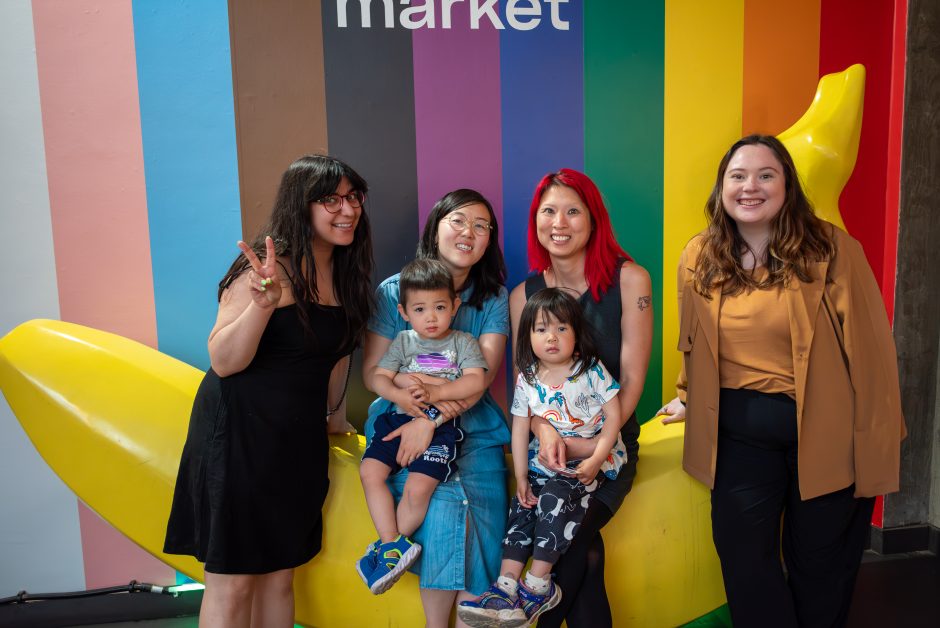
DAILY EXPERIENCES AND CULTURE STUDY
It is common for university students to be coping with stress and ADHD symptoms (even if they do not meet official criteria for a diagnosis of ADHD). However, many students do not seek or receive the academic and social supports that they need. This underutilization and undertreatment of ADHD symptoms may be more common in students who are marginalized, minoritized, or racialized because of their background/identities. The current study focuses on the experiences of one such group: Asian Canadian students at UBC.
We are recruiting diverse UBC undergraduates through the psychology human subjects pool and asking them to complete short (3-minute) surveys daily on their smartphones regarding their stress, mental health, and coping that day, for 28 days. We are hoping to understand how their beliefs about ADHD and the services they have sought and received may relate to their daily experiences at UBC, and whether these patterns differ depending on students’ racial/cultural background. We hope that results from this study will help UBC and other universities to reduce barriers to accessing mental health services. This project is just getting started.
FAMILY PERCEPTIONS OF ADHD PROJECT
Families of children and adolescents with ADHD have different views of appropriate treatment for ADHD, and different treatment experiences. In collaboration with Dr. Janet Mah at BC Children’s Hospital, we are recruiting families of children and adolescents who are being assessed for ADHD, who are Asian Canadian or who White Canadian (Western European background). We are following families through the assessment and treatment process, in the hopes of understanding how perceptions of ADHD, views of appropriate treatment, and treatment experiences may relate to cultural background. The goal is to create knowledge that will improve culturally competent assessment and treatment among service providers. This project is just getting started and is funded by the Canadian Institutes for Health Research to Amori Mikami (PI) and Janet Mah (Co-PI).
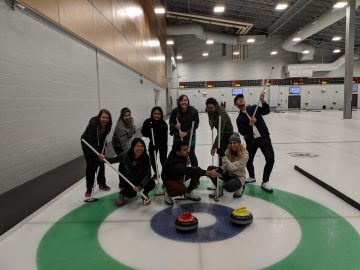
#ADHDTOK STUDY
A recent survey found that many emerging adults report getting the majority of their information about mental health from TikTok. In Part 1 of this study (completed), we tried to understand and classify popular ADHD content that currently exists on TikTok. In Part 2 (starting), we are seeking emerging adults’ reactions and responses after watching popular TikTok videos about ADHD.
PROMOTING RELATIONSHIPS IN SOCIAL MEDIA (PRISM) PROJECT
The digital world is here to stay. Our lab has been interested in the types of peer interactions that teens and emerging adults have on social media platforms as well as in modern video games. In several projects now we have studied
users’ posts and comments with their friends on social media platforms, and if you see us walking around campus in pairs with our smartphones it’s probably for the study about friendships among Pokemon Go players.
We are conducting a study testing an online tutorial that we created, which we hope will help users of Instagram and Facebook to engage with these platforms in ways that make them feel more positively about themselves and their friends. We think that it’s not the amount users are on Instagram and Facebook, it’s the way in which they are using it, that may make the biggest difference for adjustment, friendship development, and well-being. Nonetheless, we are also testing whether simply cutting back on social media use will also be helpful, in the absence of taking the tutorial.
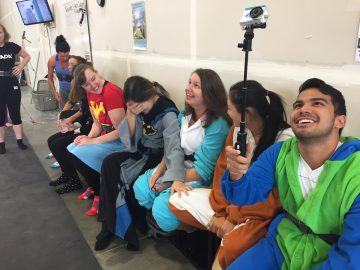
In a previous study, we examined the social relationships of first year University of British Columbia students in face-to-face contexts as well as on Facebook. We sought to understand how relationships offline and online contribute to academic success, emotional adjustment (such as lower anxiety), and feelings of belonging in their transition to University of British Columbia. This dataset is available for graduate and undergraduate student projects. Manuscripts from this dataset include Mikami, et al. (2019) Journal of Research on Adolescence, Khalis and Mikami (2018) Computers and Human Behavior, and Khalis et al. (2019) Emerging Adulthood.
We also have two datasets now involving Pokemon Go players that have yielded some interesting findings suggesting that the players who are highest in social competence and extroversion in face-to-face relationships may be doing the best at accomplishing in-game goals as well as having the most positive social interactions with other players. See Khalis and Mikami (2018) Personality and Individual Differences.
The current study is funded by an Insight Grant from the Social Sciences and Humanities Research Council to Amori Mikami (PI), and previous studies have been funded by the Social Sciences and Humanities Research Council to Amori Mikami (PI) and support from the UBC Office of Student Development.
MAKING SOCIALLY ACCEPTING INCLUSIVE CLASSROOMS (MOSAIC) STUDY
Some children have difficulty getting along with classroom peers. These peer problems can contribute to children disengaging from school and ultimately, learning less academic material in the classroom. Teachers are sometimes at a loss to know how to manage children’s social problems.
Our lab designed an intervention, MOSAIC (Making Socially Accepting, Inclusive Classrooms), to help peers be more inclusive and tolerant of one another. We think that MOSAIC will have particular benefit for students with ADHD (because these children tend to have peer and academic problems), but that MOSAIC should help any student who is seen as different by their peer group and is at risk for being socially marginalized.
As COVID-19 descended upon us, we rapidly finished a dual-site trial between UBC and Ohio University in the United States. We are testing MOSAIC in general education elementary school classrooms (grades K-4) during the regular school year.
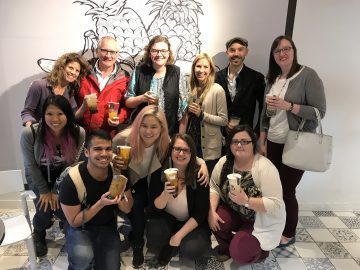
Previously we tested MOSAIC in a small, short-term pilot study taking place in a summer program enrolling 24 children with ADHD and 113 typically-developing youth ages 6-9 (50% girls). Children with ADHD experienced MOSAIC and also standard behavioral contingency management in a repeated measures crossover design. Teacher education students (n=32) were trained to deliver the treatments.
The results from the pilot study in the summer camp seemed to suggest that MOSAIC practices improved peers’ perceptions of children with ADHD, but this was not true in the main trial in schools. However, in the main trial in schools, teachers reported students who received MOSAIC to have better social and academic adjustment. For children high in ADHD symptoms, they perceived their relationship with their teachers to be more positive if the teacher had been part of MOSAIC. This highlights the difficulty with changing peers’ perceptions of students with ADHD.
The main papers summarizing results from these study have now been published (Mikami et al. 2021, Journal of Clinical Child and Adolescent Psychology; Mikami et al. 2020, School Mental Health; Mikami et al., 2013, Journal of Consulting and Clinical Psychology; Mikami et al., 2013, School Psychology Review) and we have several other manuscripts published or in preparation that also involve the dataset (for example, see Jia and Mikami, 2016, Journal of Abnormal Child Psychology and Na and Mikami, 2018, Journal of Child and Family Studies). This dataset is available for graduate and undergraduate student projects. In addition, data are available from the first 3 years of the current MOSAIC study for students’ projects.
To better understand the findings from the recent trial of MOSAIC, we are also running a small follow-up study over zoom to collect data about students’ perceptions when they view teachers delivering the MOSAIC practices. We are trying to determine children’s interpretations of why teachers would do the practices from the MOSAIC program.
The pilot study of MOSAIC was funded by National Institute of Mental Health 1R21 MH901486 to Amori Mikami (PI). The main trial was funded by the Institute of Education Sciences R324A160053 to Amori Mikami (PI) and Julie Owens (co-PI). The Michael Smith Foundation for Health Research Scholar Award also supports Amori Mikami’s efforts.
PARENTAL FRIENDSHIP COACHING STUDY
See a recent writeup about our treatment program here! https://www.kqed.org/mindshift/61966/how-parents-can-help-children-with-adhd-thrive-in-friendships
It can be painful for parents to watch their children never get invited to birthday parties and playdates, but it is hard for parents to know what to do about these problems.
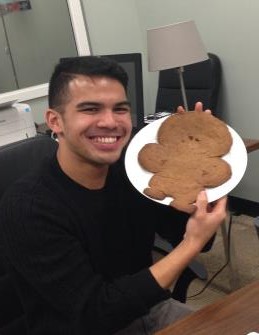
We completed a dual site clinical trial (Vancouver, BC and Gatineau, QC) comparing two psychosocial interventions to assist parents of elementary school-age children with ADHD to understand and handle their children’s friendship problems. One intervention was Parental Friendship Coaching, a behavioral parent training program created by our lab. The other intervention was a psychoeducation and support group that has been found to benefit families in the past.
This trial finished in the summer of 2018. We assessed the efficacy of the treatments on children’s social behavior, friendship making, and relationships with their parents. We were interested in knowing which treatment is most useful for what type of problems, or which type of children. We found that families who received Parental Friendship Coaching showed more parental behaviors that supported friendships, and children demonstrated better social behaviors with their close friends. For instance, children were more likely to share with their friends, and less likely to be aggressive or a poor sport in games. Although overall both interventions resulted in children showing better friendship quality (positive emotional bonds with friends), Parental Friendship Coaching was particularly helpful for two subgroups of families: those whose children had comorbid oppositional defiant disorder or conduct disorder, and those who had received psychosocial treatment prior to joining out study. The knowledge we gained can hopefully be used to help match families with appropriate treatments in the future.
Previous to the current trial, this lab collected pilot data about one of the interventions in 2007-2009 from 124 families, 62 of whom had children (ages 6-10) with ADHD and 62 of whom had age– and sex– matched typically developing children. Results from that dataset also suggested that the Parental Friendship Coaching program was helpful in improving parenting behaviors and the parent-child relationship, as well as children’s behaviors with friends on playdates.
The main results from both datasets have been published (see Mikami et al. 2020, Journal of Consulting and Clinical Psychology; Smit et al. 2021, Research on Child and Adolescent Psychopathology; Mikami et al., 2010a, 2010b, Journal of Abnormal Child Psychology) and the datasets are available for students. The Parental Friendship Coaching treatment manual has been published by Routledge and is available for purchase.
The pilot study was funded by National Institute of Mental Health 1R03 MH079019 and the CHADD Young Scientist Research Award to Amori Mikami (PI). The dual-site study was funded by the Canadian Institutes for Health Research to Amori Mikami (PI) and Sebastien Normand (Co-PI). The Michael Smith Foundation for Health Research Scholar Award also supports Amori Mikami’s efforts.